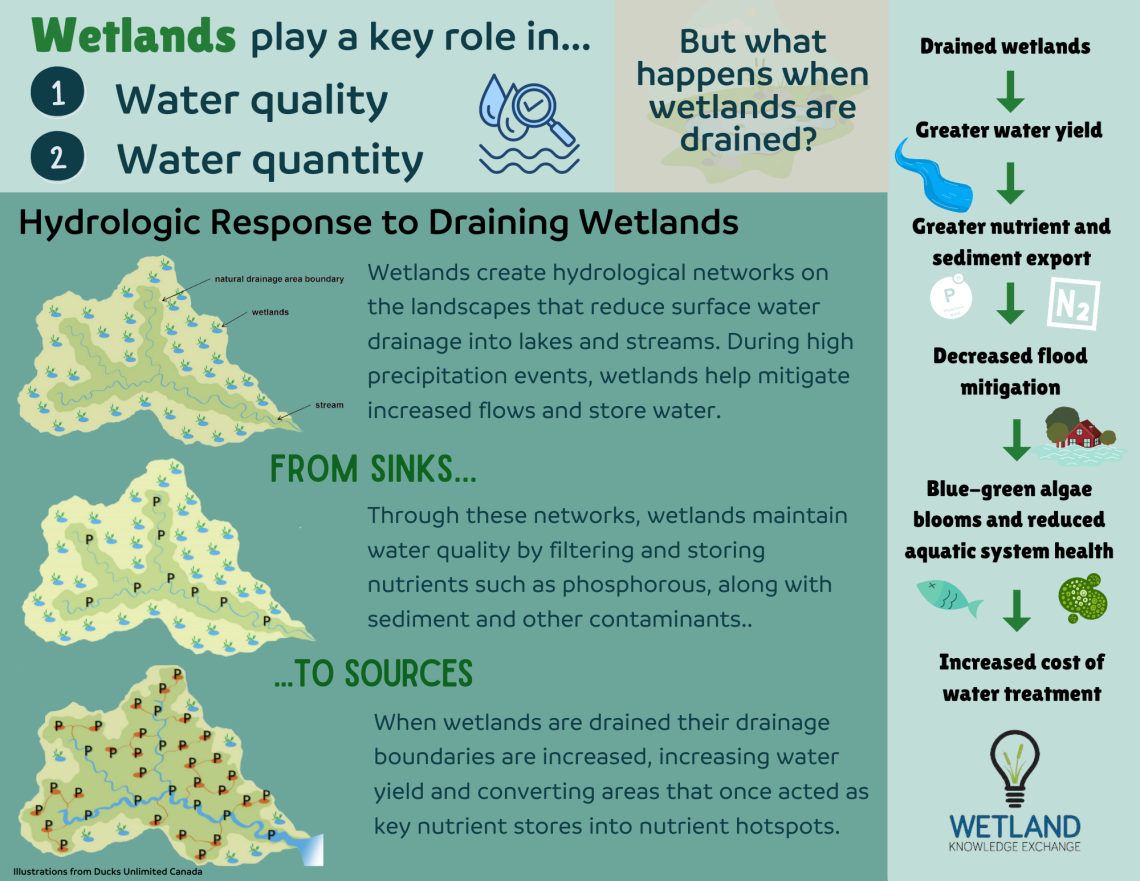
Wetlands provide irreplaceable ecosystem services and are particularly important for water quality. Wetlands can act as nutrient sinks for common nutrients such as phosphorus. As water moves across the landscape, wetlands work to reduce direct surface water drainage into lakes and filter these nutrients out and store them. However, when wetlands are removed from the landscape, these areas may become a source of phosphorus and other contaminants resulting in lower water quality in lakes.
In Alberta, many lakes in the southern parts of the province suffer from increased nutrient loading, resulting in blue-green algae blooms. Toxic blue-green algae can lead to a decline in dissolved oxygen and thus decrease habitat quality for fish and other aquatic wildlife. The removal of wetlands not only affects wildlife but can also decrease the effectiveness of water treatment facilities. Learn more about the importance of wetlands and nutrient filtering in a presentation by Ducks Unlimited Canada’s Tracy Scott here.

